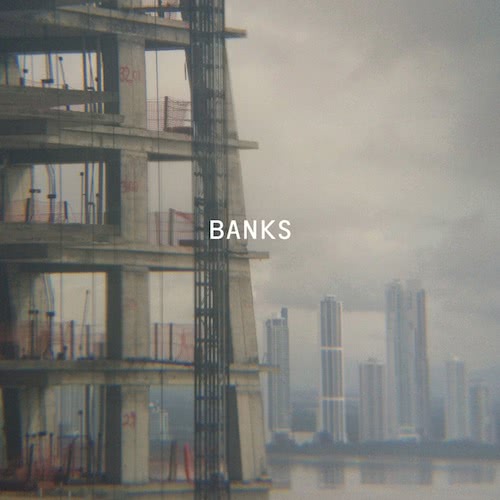For all of the supposed mystery surrounding Paul Banks, he’s a pretty straightforward guy.
Perhaps it’s the tidy, relentlessly grey-scale textures of Interpol, or the unromantic take on romance affirmed in his lyrics (“enough with this fucking incense”) which serve to cloud the New Yorker in some type of mystique. So ditching the Julian Plenti moniker for his new solo LP Banks and releasing it under his own name, people questioned the move frenziedly; to the point that Banks has even had to assure fans that Interpol is still a going concern.
While Julian Plenti was conceived of a batch of tracks he’d written not long after he’d arrived in New York; before Turn on the Bright Lights was even conceived, Banks was created on his laptop while touring Interpol’s eponymous record.
Recording predominantly on the move, at different times, in different areas across the world lends itself to a scattershot delivery, all ideas and no consistency; a criticism one could easily accuse Bank’s previous solo effort of (and Interpol’s latest, for that matter).
On Banks, however, consistency reigns supreme. While there’s nothing as instantly gratifying as ‘Evil’, or even ‘Only If You Run’, the album remains an altogether interesting and solid listen.
‘The Base’ is a swaggering opener, pairing Banks’ love of melancholy atmospheres with huge, bombastic hip hop grooves to great effect. ‘Over My Shoulder’ recalls ‘PDA’s’ infectious energy, while ‘Arise, Awake’ is Banks at his most uplifting, ending with a sample of a taxi driver sending off a passenger with some words of wisdom, “love life!” among them.
Interestingly, the album’s two instrumental tracks ‘Lisbon’ and ‘Another Chance’ are the album’s standouts. The latter incorporates an emotive spoken word spiel, “I have a neurological condition, don’t you know that? There’s something wrong with my brain!” before the song builds with some Figure 8-era piano flourishes.
There are songs which sound close to Banks’ main outfit, such as ‘I’ll Sue You’, or the Our Love to Admire-recalling ‘Paid for That’, and it’s these, along with closer ‘Summertime Is Coming’ which let the album down, flat-lining without arriving anywhere too interesting.
Despite the couple of blank mid-album tracks, this is a commanding listen with an array of concise sounds and textures, resulting in Banks crafting his best work in over half a decade.

































